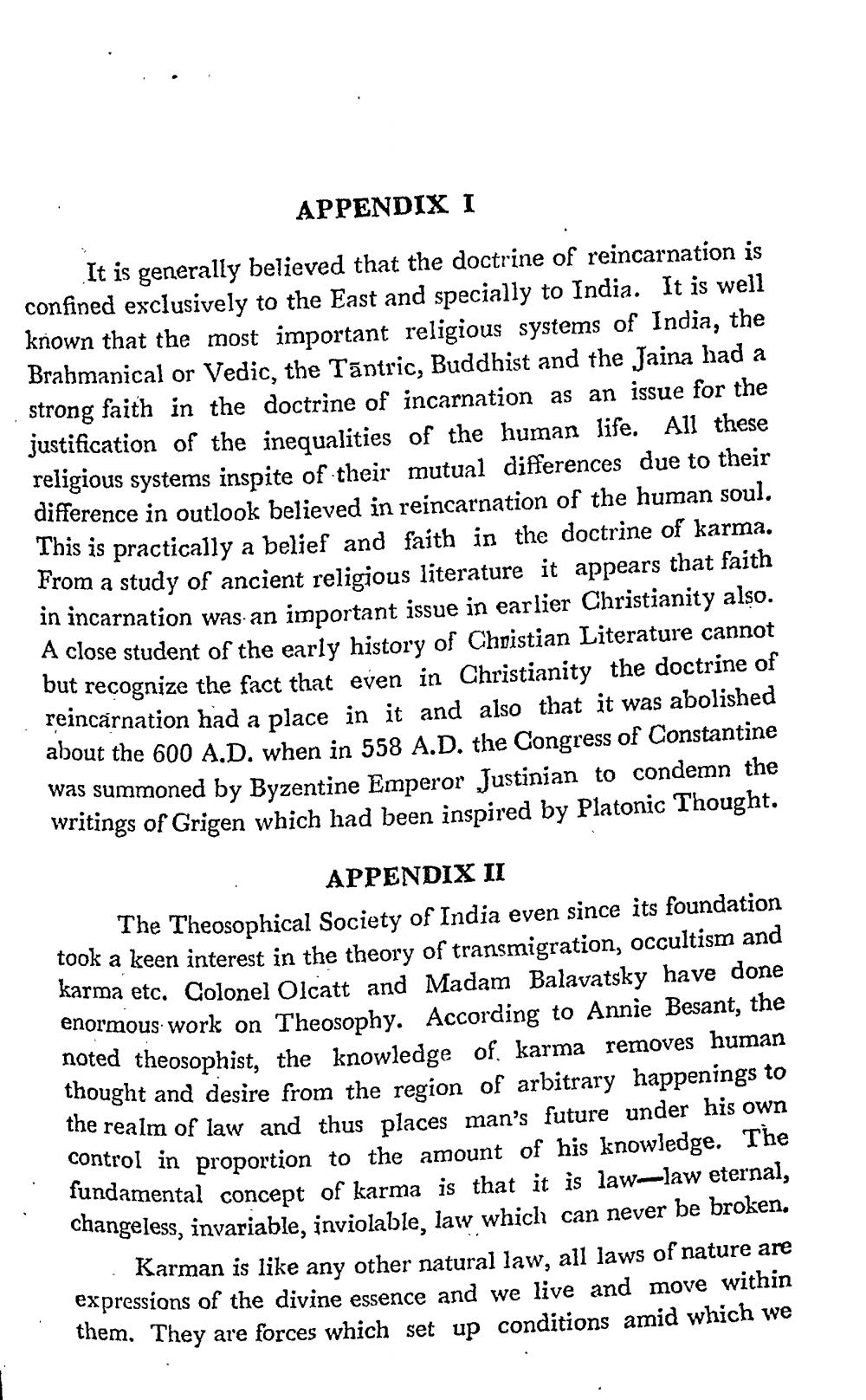________________
APPENDIX I
It is generally believed that the doctrine of reincarnation is confined exclusively to the East and specially to India. It is well known that the most important religious systems of India, the Brahmanical or Vedic, the Tántric, Buddhist and the Jaina had a strong faith in the doctrine of incarnation as an issue for the justification of the inequalities of the human life. All these religious systems inspite of their mutual differences due to their difference in outlook believed in reincarnation of the human soul. This is practically a belief and faith in the doctrine of karma. From a study of ancient religious literature it appears that faith in incarnation was an important issue in earlier Christianity also. A close student of the early history of Christian Literature cannot but recognize the fact that even in Christianity the doctrine of reincarnation had a place in it and also that it was abolished about the 600 A.D. when in 558 A.D. the Congress of Constantine was summoned by Byzentine Emperor Justinian to condemn the writings of Grigen which had been inspired by Platonic Thought.
APPENDIX II The Theosophical Society of India even since its foundation took a keen interest in the theory of transmigration, occultism and karma etc. Colonel Olcatt and Madam Balavatsky have done enormous work on Theosophy. According to Annie Besant, the noted theosophist, the knowledge of, karma removes human thought and desire from the region of arbitrary happenings to the realm of law and thus places man's future under his own control in proportion to the amount of his knowledge. The fundamental concept of karma is that it is law-law eternal, changeless, invariable, inviolable, law which can never be broken.
Karman is like any other natural law, all laws of nature are expressions of the divine essence and we live and move within them. They are forces which set up conditions amid which we




